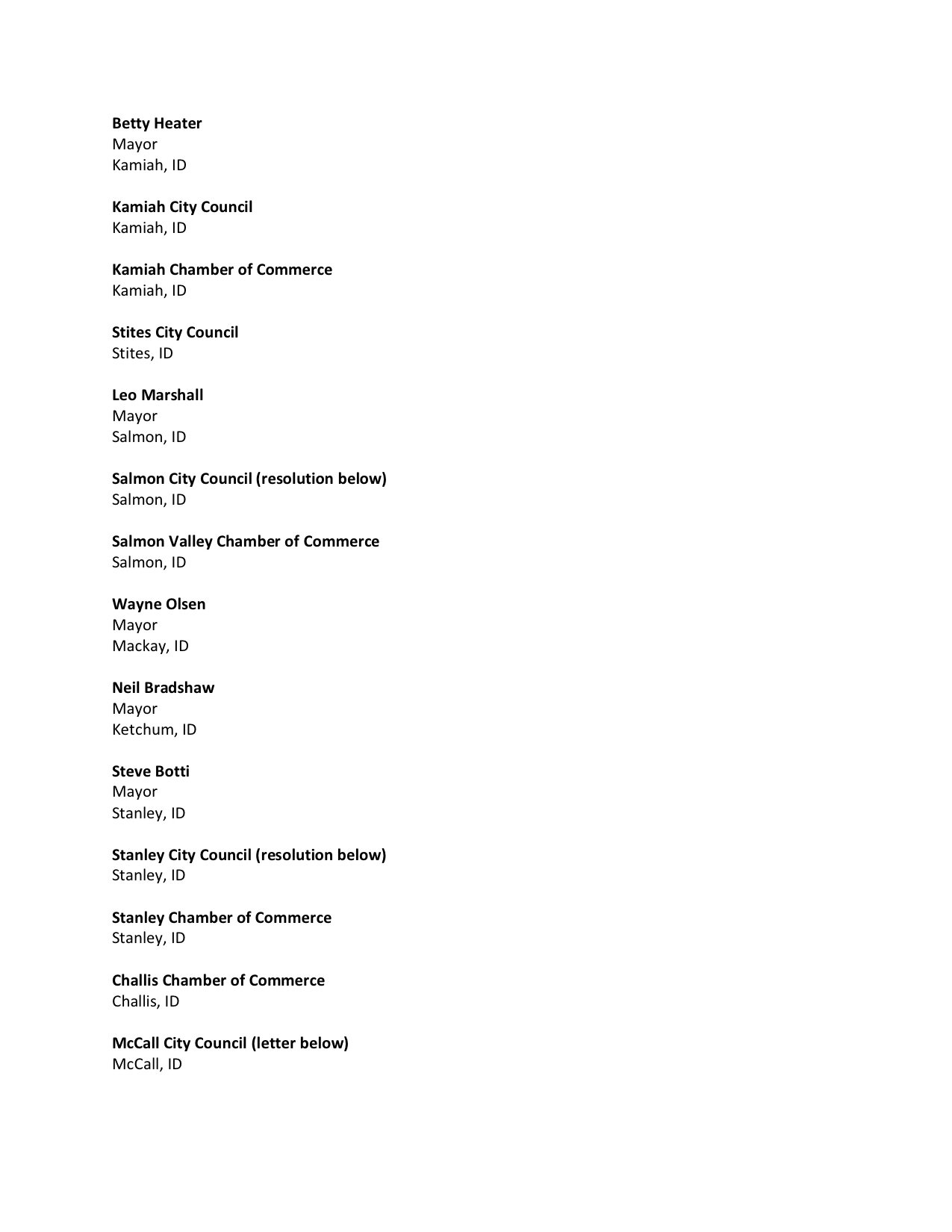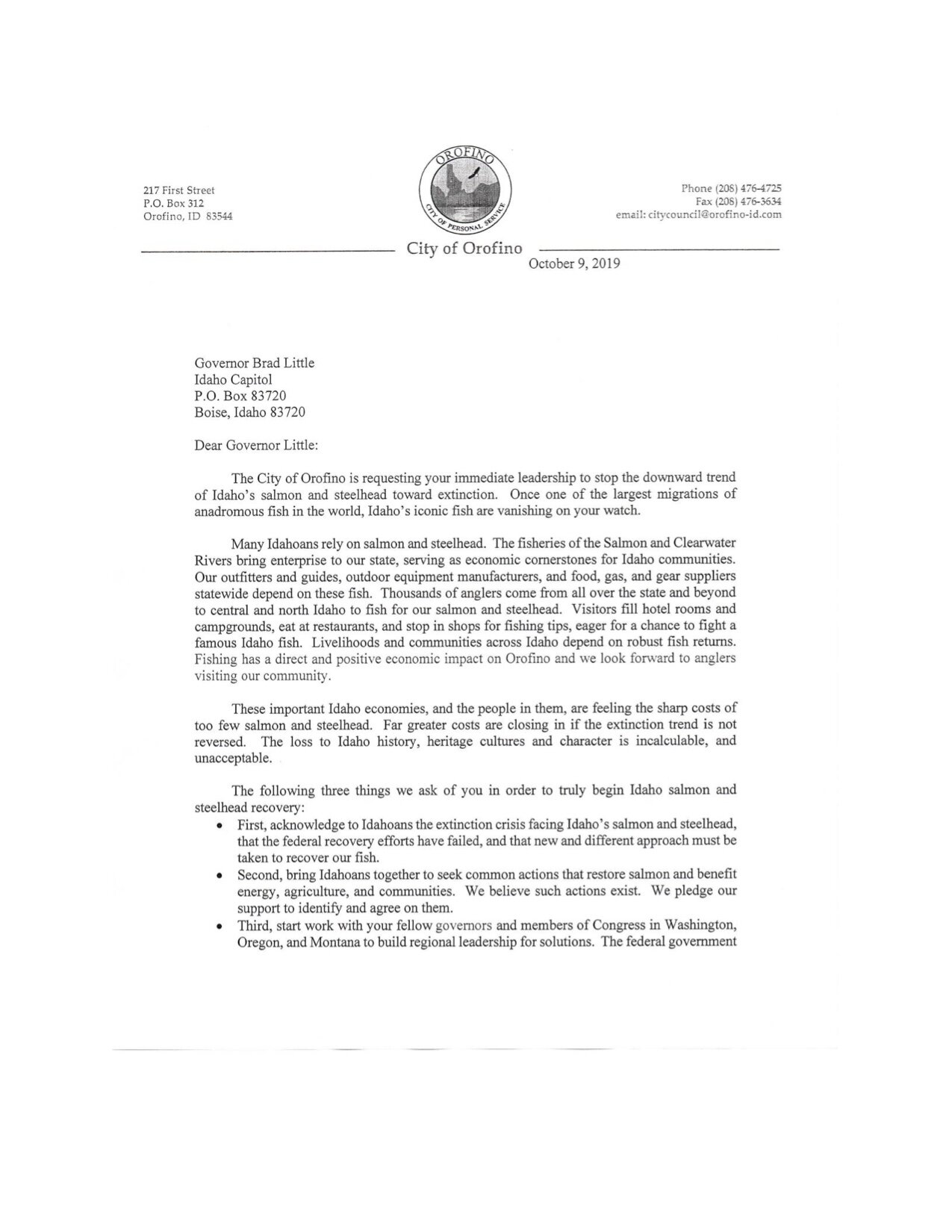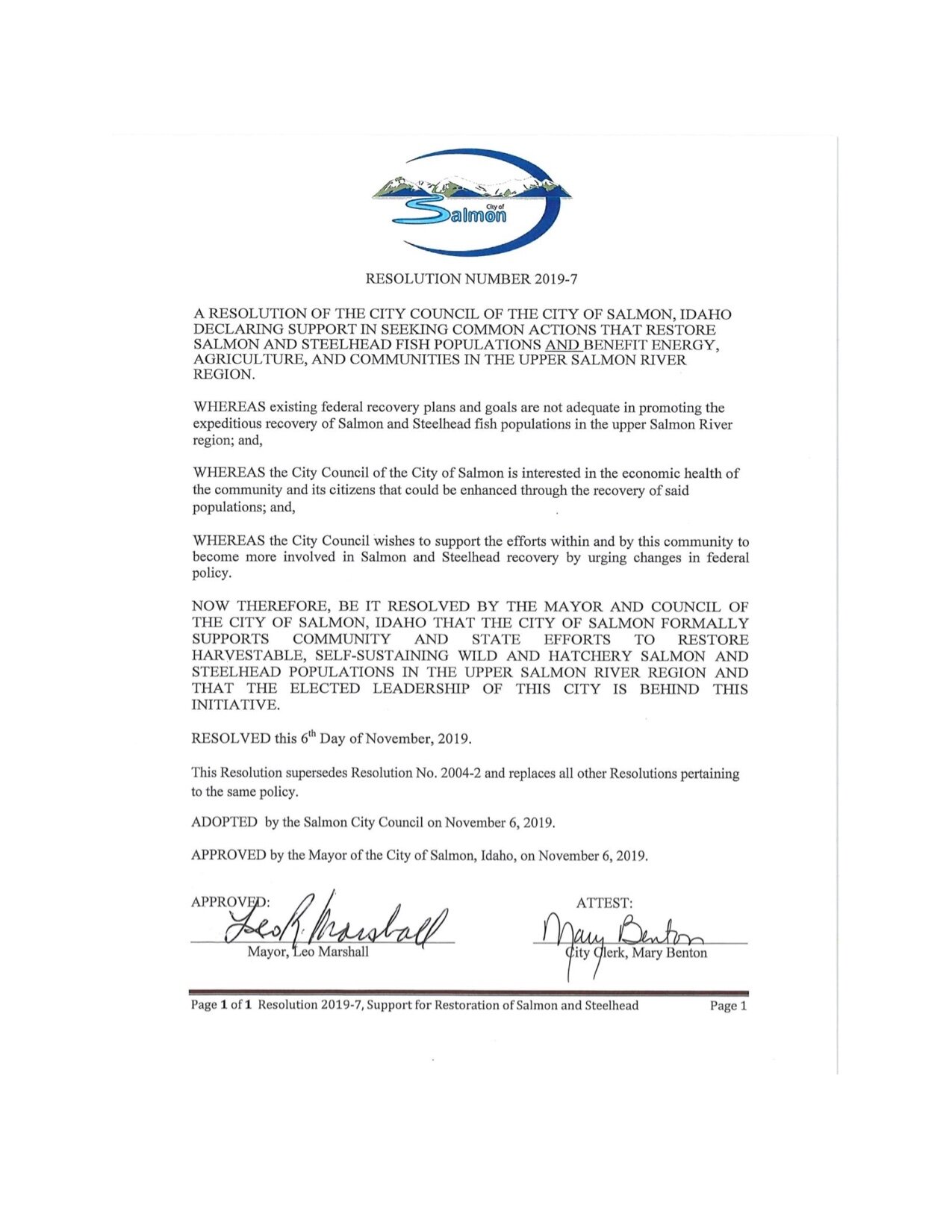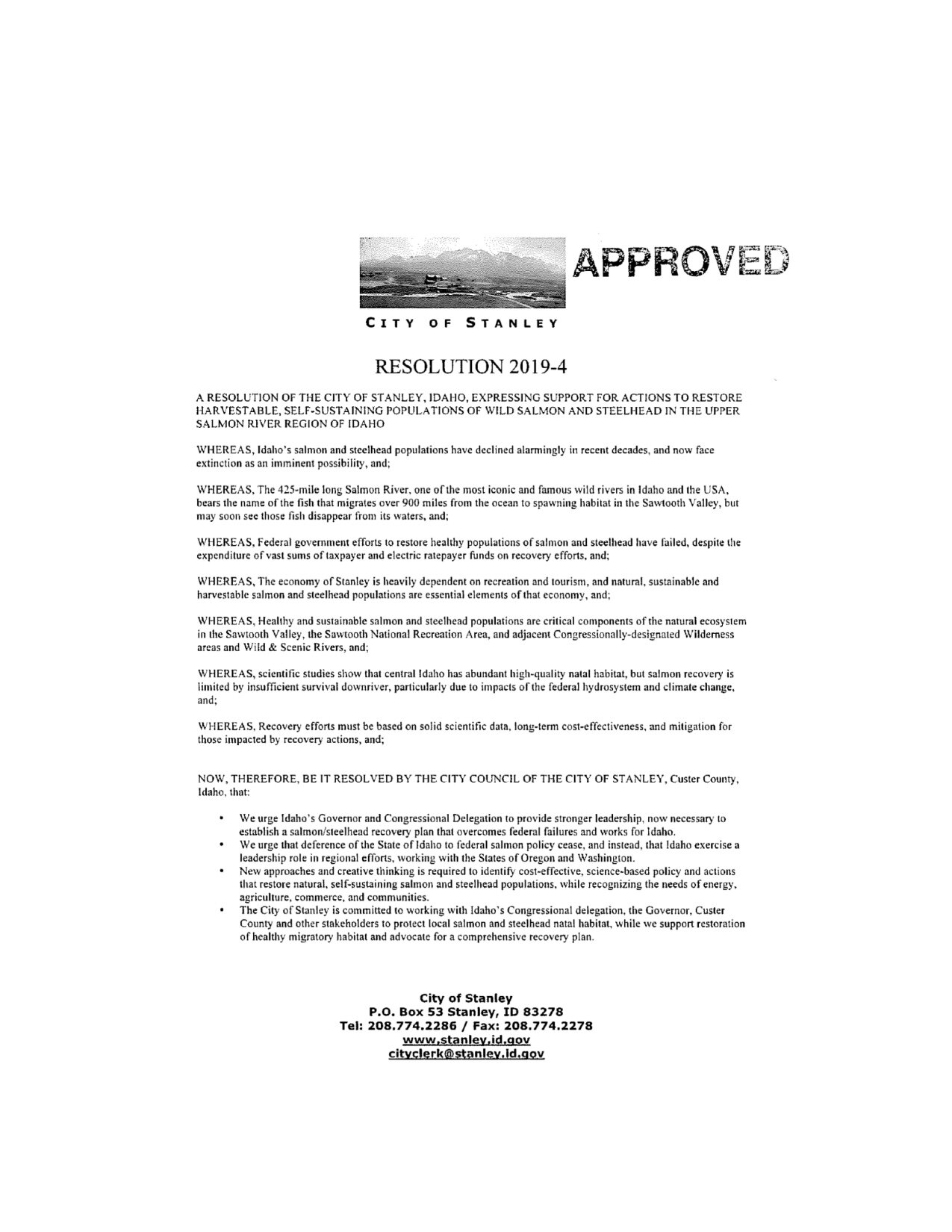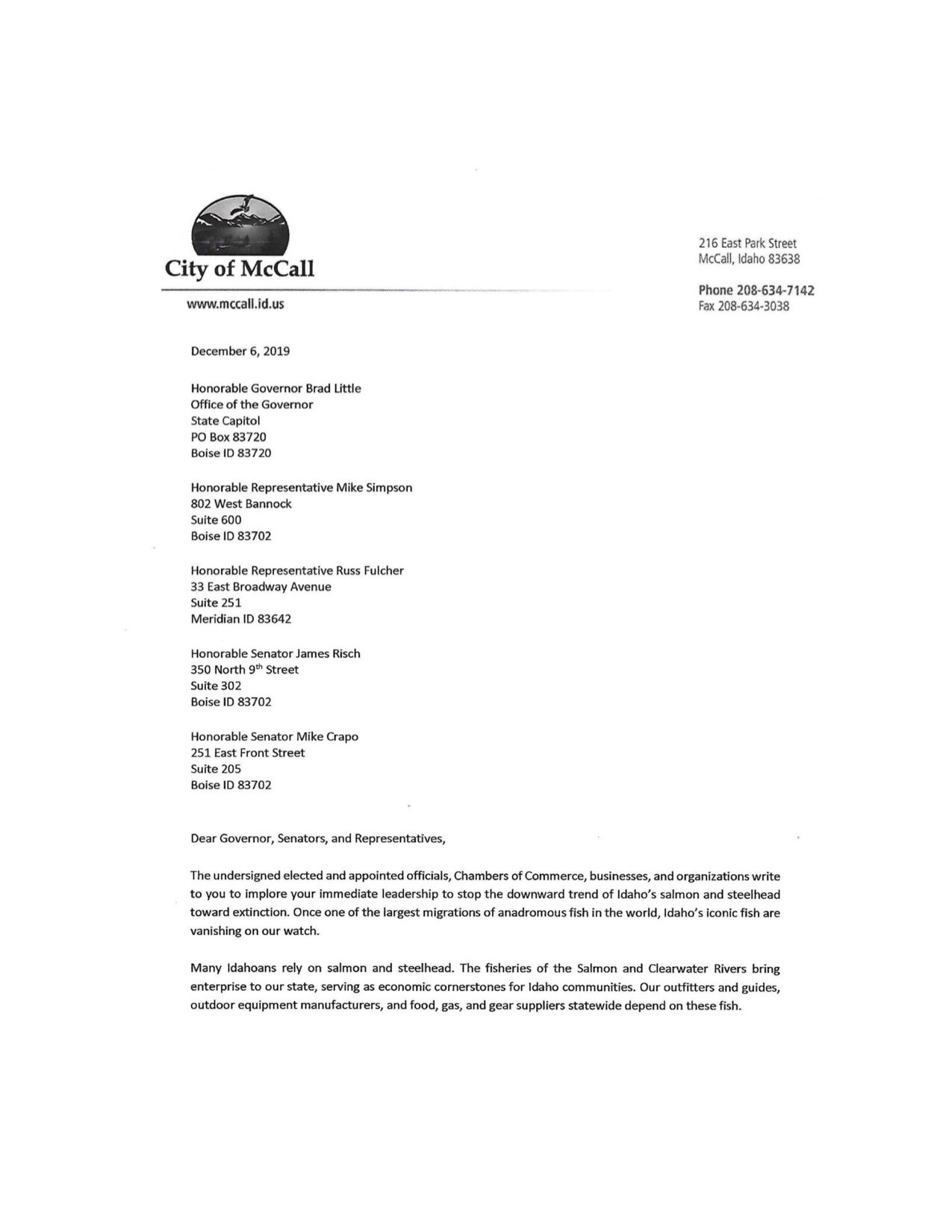Central Idaho Towns Demand Action To Save Fish and Communities
Contacts:
Brian Brooks, Idaho Wildlife Federation Executive Director, bbrooks.iwf@gmail.com
Aaron Lieberman, Idaho Outfitters and Guides Association Executive Director, aaron@ioga.org
BOISE, ID: Idaho mayors, city councils, and chambers of commerce send letter to Idaho’s leaders demanding action to reverse extinction trend of salmon and steelhead.
The letter, addressed to Governor Brad Little, Senators Jim Risch and Mike Crapo, and Representatives Mike Simpson and Russ Fulcher, calls for immediate leadership to keep Idaho’s anadromous fish from vanishing.
The signers first ask Idaho’s leaders to acknowledge that the federal efforts to recover salmon and steelhead in Idaho have failed, and that a new approach must be taken towards recovery. Second: bring Idahoans together to seek common actions that restore salmon and benefit energy, agriculture, and communities. Third: work across the region with governors and legislators in Washington, Oregon, and Montana to lead on a path forward. Numerous city councils across Central Idaho have passed resolutions with similar language to elevate their city’s position on seeking common solutions to reverse the extinction crisis.
Impacts from dangerously low fish returns are being felt across both the Salmon and Clearwater Basins. The past few seasons have forced fisheries managers to limit harvest of hatchery fish, cut seasons short, or completely shut down fishing opportunities. For the first time, the Clearwater River was closed to all steelhead fishing in the Fall of 2019, and opened to catch and release only fishing January 1st, 2020. Due to the closure, the Clearwater region lost $8.6 million a month over those four months, a devastating blow to those river side communities.
Dallon Wheeler, President of the Kamiah Chamber of Commerce said “When the season’s good, everything’s up, from lodging to dining to sporting goods stores. When it’s down, even if it’s not closed, it has a huge effect on both tribal and non-tribal economies. It’s a rough go for everyone. You have to have something to work with to meet everyone’s needs.”
Downriver in Orofino, Mayor Ryan Smathers echoed Wheeler’s thoughts, calling for solutions that benefit everyone. “Orofino depends on a healthy fish run to complete our economic stability. When the season closes unexpectantly or runs are worse than normal, restaurants, hotels, guides and our entire community suffers. We sacrifice the Dworshak reservoir water to help the fish and cool the river and it’s not helping. It’s time to work together toward solutions we can all live with!”
“Riggins is a rural community in central Idaho of 400 people that relies on travel and tourism as its main economic driver,” said Karen Savage, President of the Salmon River Chamber of Commerce. “The Salmon and Steelhead fishing seasons bring millions of dollars to our city and surrounding communities. Having strong fish numbers that we can count on, year over year, is imperative to our continued economic growth and stability.”
Aaron Lieberman, Executive Director of Idaho Outfitters and Guides Association, underscored the link of fishing to small river communities, saying “Approximately 80% of Idaho outfitters live and contribute to the communities with an average population of 500. The importance of these fish and the outfitting and guiding industry to these rural Idaho communities cannot be overstated. Yet fishing outfitters and guides and their communities continue to helplessly watch the downward arc of Idaho’s anadromous fish.”
Idaho Wildlife Federation has worked for years to elevate and unify voices of sportsmen and women who want change for the future. But Executive Director Brian Brooks, who holds a seat on Governor Little’s Salmon Work Group, prefers these communities and sportsmen to be in the forefront of the conversations. “It is important to note that our organization just serves as a megaphone for the voices of these communities. We heard the demand from these riverside towns, listened, and pointed them to the controls of power. It’s time for our elected officials to hear those voices and acknowledge that we must come together for a solution that benefits all moving forward.”
The unified letter comes at the heels of the release of the draft environmental impact statement for the Columbia-Snake River System Operations, which many conservation groups condemned as yet again failing to address true recovery strategies for Columbia and Snake River fish. The dEIS literally left out any and all economic data pertaining to Idaho’s fish, even though the data is readily available.
“The fate of Idaho’s iconic fish, as well as the livelihoods and communities of our fishing outfitters depends on bold leadership and swift action,” Lieberman said, directed at Idaho’s elected leadership. “We need you.”
See the letter, list of signers, and associated resolutions below.



